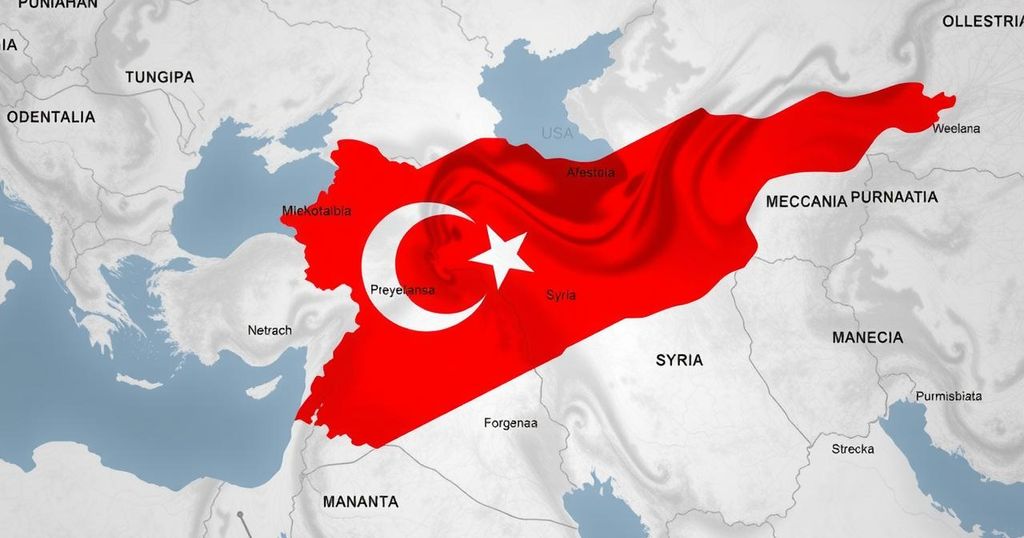Turkey has emerged as the dominant foreign player in Syria following the weakening of the Assad government, effectively reducing Iran’s influence. This transformation reflects their ongoing rivalry, primarily spurred by the Syrian civil war’s developments. Despite Turkey’s growing foothold, analysts caution that relations with Iran may remain stable despite potential competition. The Kurdish issue also poses an ongoing challenge for Turkey, as it navigates its interests in a shifting political landscape.
The ongoing conflict in Syria has resulted in Turkey emerging as the primary foreign influence in the region, particularly following the recent challenges faced by Bashar al-Assad’s regime, which has significantly diminished Iran’s standing. Analysts have noted that while Turkey’s ascendant role marks a shift in dynamics in favor of Ankara, it does not necessarily indicate a drastic change in bilateral relations between Turkey and Iran. Both nations have historically competed for influence in the Middle East, with Turkey’s interests revolving around curbing Kurdish power and establishing a government in Syria aligned with its policies.
The Syrian civil war, which began in 2011, saw Turkey, Iran, and Russia supporting opposing factions. Iran relied heavily on Assad’s regime to maintain a foothold in Syria, using it as a base to assist allied groups like Hezbollah. Russia’s strategic military interests in Syria were also tied to the Assad government, consolidating its military presence in the region. Meanwhile, Turkey supported rebel factions, aiming to control Kurdish military formations that pose a threat to its national security. Turkey’s objectives in Syria are primarily centered around three concerns: combatting the Kurdish entities, enabling the safe return of Syrian refugees, and foiling any further influx of migrants into Turkey.
Anticipating the geopolitical implications of Turkey’s rising dominance, experts suggest that the evolving situation in Syria could influence broader regional conflicts, notably in the South Caucasus, where Turkey, Iran, and Russia continue to vie for supremacy. Although the established Astana talks platform may be losing relevance, coordination among these states may still prove beneficial in mitigating conflicts across the region. Furthermore, despite differing interests, shared opposition to Israel may present opportunities for cooperation between Turkey and Iran in specific scenarios.
The context of the study on Turkey and Iran encompasses the complex power dynamics at play in Syria amidst a decade-long civil war. With the Syrian civil war igniting in 2011, numerous external players, including Turkey, Iran, and Russia, have vied for influence. This competition denotes broader regional strategic interests, where a change in Syrian leadership could affect not only local power balances but also relations amongst key players in the Middle East. The political landscape has shifted as the Iranian-backed Assad regime faces increasing challenges, leading to Turkey’s ascension as a leading actor in the country.
In summary, the shifting dynamics of power within Syria following the Assad regime’s instability have solidified Turkey’s role as a dominant foreign influence, eclipsing Iran’s previous stronghold. While Turkey has advanced its strategic objectives, particularly concerning Kurdish forces, the historical complexities of Turkey-Iran relations suggest that both nations may still find overlapping interests. The fate of the Syrian Kurds and potential strategic alliances will remain key focal points in the geopolitics of Syria and its interactions with regional powers.
Original Source: www.eurasiareview.com







